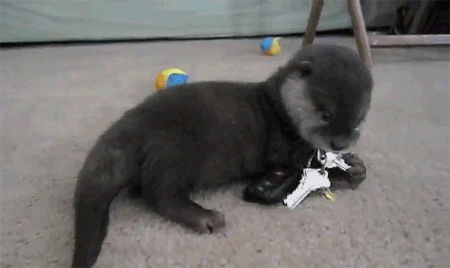“There are two kinds of people in the world. Those who divide the world into two kinds of people, and those who don’t” – Robert Benchley
Rewind. Two years ago. The morning after Thanksgiving. At approximately 5:45am, a drowsy me and my less drowsy boyfriend-at-the-time, Dustin, sit opposite my Grandpa at his breakfast table, interview style. We had had a wonderful weekend of family fun and as we sipped the last of our coffee and prepared for the 7-hour drive home that lay ahead, I was beginning to think that I had escaped the inevitable interrogation of my longest standing boyfriend. “I’m curious…” my grandfather started, in that measured, lawyer-tone of his. “You two seem like a good pair, but there are some very important qualities that two people need to succeed long-term. Answer me simply. Would you consider yourself a ‘Concept Person’ or a ‘Details Person’?”

“Concept.” I replied without hesitation. “Details.” Dustin said in harmony with my response. It was a simple categorization and obvious for both of us. Yet, for some reason in that moment, it was like looking at a picture of ourselves that we didn’t remember taking. Gramps went on to suggest that the best pairs need one concept person and one details person so that as a couple we may not only have dreams but realize them.
That moment, among others, made me more certain that Dustin was the person I was going to spend the rest of my life with and, not-surprisingly, he is now my husband! Vom.com, I know. But just as important, was my newfound understanding of the role I play in many relationships: as a co-worker, a friend, an event-planner, even as a member of my family. Identifying myself as a concept person has helped me embrace my strengths: my sense of creativity, innovation, and curiosity. I also had to come to terms with my weaknesses: putting too much on my plate, occasional lack of direction, and a tendency to assume the details will work themselves out.

Once we arrived home I began to think further about my Grandpa’s theory. I didn’t know how to react to these new labels exactly. Part of me didn’t like being put into a category. “I can be a details person!” I thought. I secretly tried to pay better attention to the details in my day that I hadn’t bothered to notice before.
I paid more attention to directions, even when I wasn’t the person driving.
I took care to notice where I placed my keys and bag down upon walking through the door. (This is something that my details-oriented other half and college roommates know is a fatal flaw of mine, resulting in me never knowing where my keys are when I get up to leave the house.)

But, finally, I recognized that it wasn’t that I couldn’t pay attention to these details. With enough focus, I was able to correct these small habits (for the most part). The issue was that it wasn’t in my nature to think about these details because my mind was already focused on the concept. When I’m in the car I am thinking about where I will end up, rather than where I’m going. When I open my front door, I am anticipating the people and feelings that greet me when I’m home, not thinking about needing my keys to be able to leave again. Being a self-proclaimed ‘Concept Person’ has helped me better understand my strengths and identify my weaknesses. Almost every job listing demands “Attention to Detail” as a required personal quality, so I’m not proposing that us ‘concept folk’ should wholly ignore these skills. On the contrary, I hope that acknowledging this personality trait will force me to put more focus on my weaknesses and, in my personal life, to be more conscious to surround myself with more people like my husband, who help me bring my concepts to life by helping with the details.
Are you a concept person or a details person? Has making this distinction about yourself been helpful? Share in the comments!

